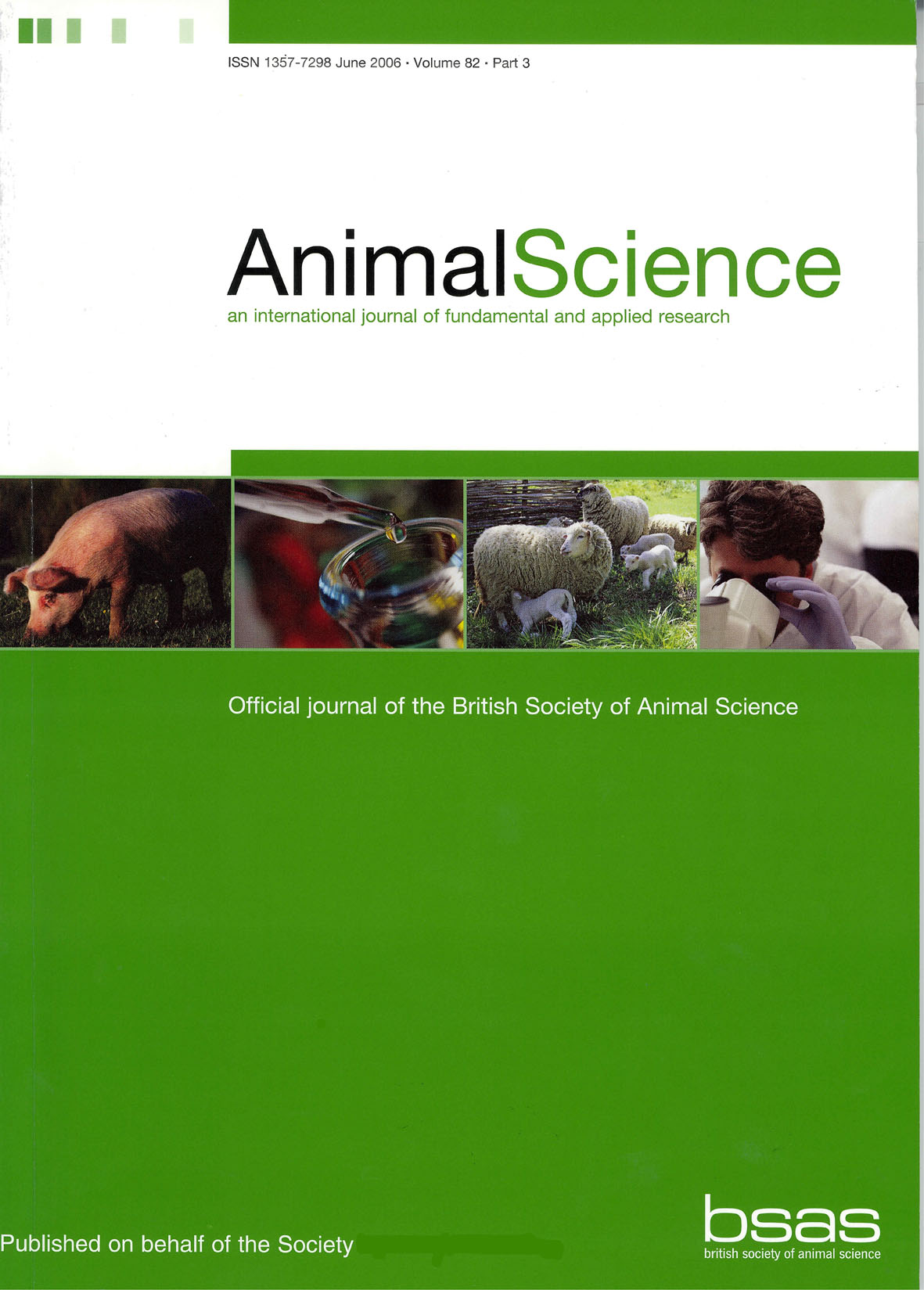Article contents
Performance and nutrient utilization of growing pigs given an expanded and pelleted diet
Published online by Cambridge University Press: 02 September 2010
Abstract
A grower diet containing barley, wheat and soya-bean meal was expanded at 110°C and subsequently pelleted at 80°C. This processing was evaluated in laboratory tests as well as in digestibility experiments involving 12 barrows with an average initial live weight of 40 kg. The unprocessed control diet was offered as a meal. Each diet was offered ad libitum to six pigs during a 5-week period. The 1st week was an adaptation period and measurements were not carried out. Each pig was used in two 5-day digestibility trials which were performed in weeks 2 and 4. Neither food intake, weight gain nor food: gain ratio during the whole 4-week experimental period, nor apparent faecal digestibility and apparent retention of protein were significantly affected (P > 0·05) by expanding and pelleting the diet. Processing caused an increase in the in vitro protein solubility (P < 0·05) and reduced the dietary contents of free lysine and methionine (P < 0·05) while the contents of available lysine and free threonine and tryptophan were not significantly changed (P > 0·05). Apparent faecal digestibility of crude fibre increased substantially (P < 0·05) when the diet was processed, resulting in significantly lower production of faecal mass (P < 0·05) as well as lowerfaecal moisture content (P < 0·05). These phenomena were parallelled by a smaller water consumption (P < 0·05). Apparent digestibility and retention of phosphorus and calcium were diminished (P < 0·05) when the diet was expanded and pelleted.
Information
- Type
- Research Article
- Information
- Copyright
- Copyright © British Society of Animal Science 1998
References
- 6
- Cited by

